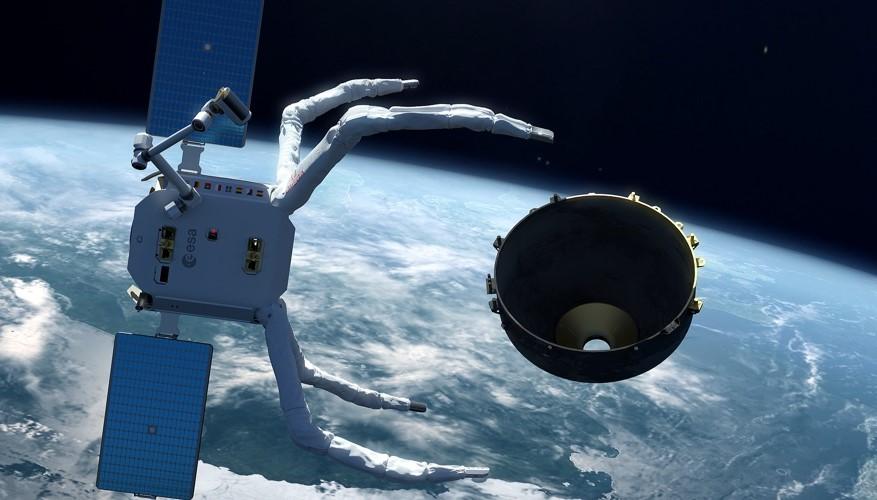
ClearSpace’s spacecraft will reach out and grab space debris.
ClearSpace, a startup focused on in-orbit servicing and space debris removal, has raised a €26.7 million ($28.9 million) Series A round.
The financing will be used to help pay for the company’s first space debris removal mission, ClearSpace-1, which is scheduled to launch in 2026, the spacecraft developer said on Jan. 19. That first mission, commissioned by the European Space Agency (ESA) and worth €110 million, is to remove a 112-kg Vespa secondary payload adapter left in an about 664- to 801-km orbit after an ArianeSpace Vega launch in 2013.
ClearSpace’s debris removal spacecraft has four robotic arms that reach out and grapple space junk. On its initial mission, after grabbing the debris, its spacecraft will push itself back into Earth’s atmosphere for incineration.
The UK Space Agency has also commissioned ClearSpace to develop a mission to remove two UK-registered pieces of space debris from low Earth orbit (LEO). The Clearing of the LEO Environment with Active Removal mission is scheduled to reach its preliminary design review by October 2023.
Founded in 2018, ClearSpace of Renens, Switzerland, aims to provide orbit debris removal services in geostationary orbit and LEO. The company is also planning to attempt in-orbit servicing. In November it announced an agreement to attempt a service life extension for one of Intelsat’s geostationary satellites when it reaches the end of its nominal lifespan around 2026-2028.
The startup’s Series A financing round was led by OTB Ventures–backed by the European Investment Fund, as part of the InvestEU program–and Swisscom Ventures. There was also participation by the Luxembourg Future Fund, Lakestar, In-Q-Tel, Happiness Capital and 600 T Space Investments. As part of the financing agreement, ClearSpace plans to establish an operational presence in Luxembourg.
